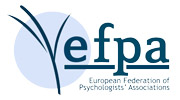EFPA EMC 29/2014: International Day of Tolerance : November 16.
EFPA states great significance of psychology in the promoting of tolerance
November 16th is stated as the International Day of Tolerance by the United Nations. The European Federation of Psychologists’ Associations (EFPA) supports governments and NGOs in their activities and encourage policy makers to consider more use of psychological knowledge and psychologists’ expertise in promoting tolerance. EFPA states that psychology can deliver a significant contribution to the promoting of tolerance in society and takes the International Day of Tolerance to encourage all member associations to carry out the message in their territory.
Psychologists are able to address the underlying causes of social problems and intolerance in communities. Psychologists can nourish and observe the values and attitudes that stimulate tolerant behavior in society.
Interventions that target social change
In the Principles on Tolerance agreed by UNESCO in 1995, it is highlighted that in a time of increasing globalization, mobility, communications, migration and changing social patterns, tolerance is critically important. Psychologists can contribute to the promoting of tolerance by providing interventions that target social change by empowering disadvantaged and marginalized groups of people, such as children and youth living in poverty, refugee families, lesbian, gay, bisexual, and transgender (LGBT) people, women experiencing violence or the elderly with isolated lives. For example, Afghan women who had experienced threats and violence were engaged in local political work for human rights. They experienced reduced traumatic stress after participating in a community based projecthttp://education.rafto.no
Promote diversity, participation and social inclusion
People disempowered because of income, gender, war or immigration are vulnerable to experiences of intolerance from the communities they live in, including the health and welfare systems that are designed to help. Psychologists are trained to negotiate and intervene in those power structures and situations where there is growing intolerance and ill health. This way, psychologists can work on a community level to promote diversity, participation and social inclusion as means to achieve wellbeing. As an example, see the Casas Primiero initiative in Lisbon,http://www.gjcpp.org/en/photovid.php?issue=11&photovid=37
Engage young people
Psychologists are also working with Human Rights Organizations to develop education models aimed at engaging young people in working for tolerance. By offering education programs for psychologists and other health personnel that include research methods and interventions to reduce intolerance, psychology can make a difference.
For examples, see http://www.ncbi.nlm.nih.gov/pubmed/20391055 andwww.yorksj.ac.uk/ccsp.
Facilitate cultural assimilation in communities
Social justice and liberation are core values of Community Psychology, where there is growing interest to look for new perspectives in dealing with increased intolerance arising from the economic crisis, with a taskforce working under the auspices of the European Community Psychology Association (see http://communitypsychologyuk.ning.com/events/next-london-comm-psych-network-session-the-european-community-psy?xg_source=activity). Psychology can facilitate cultural assimilation in communities by providing research-based interventions proven effective in integrating new citizens (seehttp://www.gjcpp.org/en/article.php?issue=16&article=79 ).
Working together with other disciplines, understanding the relation between individual and context using concepts such as ‘sense of community’, psychologists are practicing in line with WHO in targeting the Health 2020 policy framework and strategy “… to reduce health inequalities, strengthen public health, and ensure people-centered health systems that are universal, equitable, sustainable and of high quality”.
Note to the editor, not for publication:
Further information on this press release can be provided by Nicholas Carr, Convenor of the EFPA, Standing Committee on Community Psychology at nicholas.carr (at)helse-bergen.no or Jacqueline Akhurst, Immediate past chair of the BPS Community Psychology Section atJ.Akhurst(at)yorksj.ac.uk.
Best regards,
_________________________________________
Robertas Povilaitis – Secretary General EFPA
European Federation of Psychologists Associations
Grasmarkt 105/39 – B-1000 Brussels – Belgium
Phone : +32 (0)2 5034953 – Fax : +32 (0)2 5033067
email : headoffice@efpa.eu
www.efpa.eu – www.europeanpsychologist.eu
Find us on Facebook !
EFPA EMC 29/2014: International Day of Tolerance : November 16 (doc)





